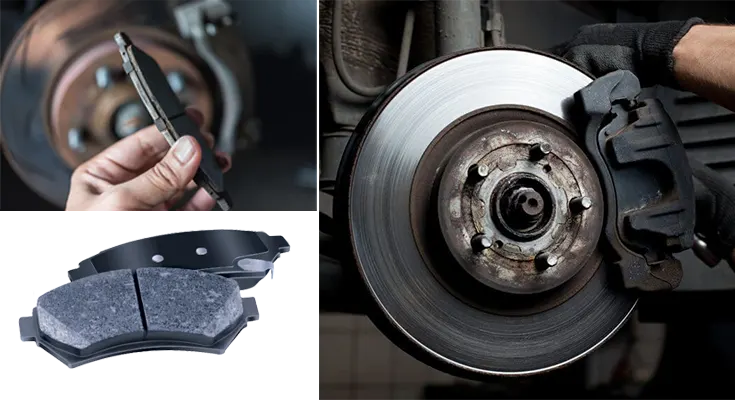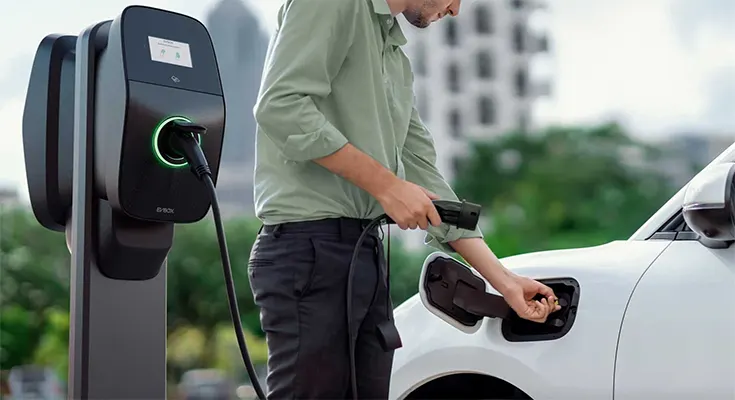Brake pads are essential components of your vehicle’s braking system, responsible for slowing and stopping your car. Understanding their lifespan and factors affecting it can help you ensure your vehicle’s safety and performance.
Factors Affecting Brake Pad Lifespan
Several factors can influence how long your brake pads lifespan last. These include:
1. Driving Habits
- Aggressive Driving: Frequent hard braking, rapid acceleration, and cornering can significantly accelerate brake pad wear. This is because these actions create more heat and pressure on the pads, causing them to wear down faster.
- City Driving: Frequent stops and starts in city traffic can also contribute to increased brake pad wear. The constant braking and accelerating can put extra strain on the pads.
- Highway Driving: While highway driving generally involves less braking, heavy loads or towing can put extra strain on the brakes. This is because the additional weight increases the force required to stop the vehicle.
2. Brake Pad Material
- Organic Pads: Made from organic materials, these pads are typically quieter but may have a shorter lifespan. They are often used in smaller, lighter vehicles.
- Semi-Metallic Pads: Containing a blend of metal and organic materials, these pads offer a balance of performance and durability. They are a popular choice for many vehicles.
- Ceramic Pads: Made from ceramic materials, these pads are known for their quiet operation, long lifespan, and heat resistance. They are often used in high-performance vehicles.
3. Vehicle Weight and Load
- Heavier Vehicles: Heavier vehicles require more braking force, leading to faster brake pad wear. This is because the increased weight puts more pressure on the brakes.
- Carrying Loads: Transporting heavy loads can also increase the strain on your brakes. This is especially true when carrying heavy objects on the roof or in a trailer.
4. Road Conditions
- Rough Roads: Driving on rough roads can cause excessive vibration and heat, which can accelerate brake pad wear. This is because the vibrations can cause the pads to rub against the rotors more aggressively, leading to increased wear.
- Wet or Snowy Conditions: Braking in wet or snowy conditions can increase the demand on your brakes. This is because the reduced traction can make it more difficult to stop the vehicle.
5. Brake System Maintenance
- Brake Fluid Condition: Dirty or low brake fluid can affect brake performance and contribute to premature wear. Over time, brake fluid can absorb moisture, which can reduce its effectiveness.
- Rotor Condition: Warped or grooved rotors can cause uneven braking and accelerate brake pad wear. Warped rotors can cause the pads to make contact with the rotors at uneven points, leading to premature wear.
Signs of Worn Brake Pads
It’s important to be aware of the following signs that your brake pads may be worn:
- Grinding or Squeaking Noise: This noise often indicates that the brake pads are worn down to the metal backing plate. The metal backing plate will rub against the rotor, creating a loud, grinding noise.
- Extended Stopping Distances: If your vehicle takes longer to stop than usual, it could be a sign of worn brake pads. This is because the pads may not be providing enough stopping power.
- Pulled to One Side: If your vehicle pulls to one side when braking, it may be due to uneven brake pad wear. This is because the brake pads on one side may be worn more than the pads on the other side.
- Brake Warning Light: Some vehicles have a brake warning light that will illuminate when the brake pads are worn. This light is usually located on the dashboard.
Brake Pad Replacement
When your brake pads are worn, it’s essential to have them replaced promptly to ensure your safety. A qualified mechanic can inspect your brakes and recommend the appropriate replacement parts. It’s also important to replace the rotors if they are warped or grooved.
Tips for Extending Brake Pad Lifespan
- Smooth Braking: Avoid sudden braking and try to anticipate stops. This will help to reduce the amount of wear and tear on your brake pads.
- Regular Inspections: Have your brakes inspected as part of your routine vehicle maintenance. This will allow you to catch any problems early, before they become more serious.
- Quality Replacement Parts: Use high-quality brake pads and rotors to ensure optimal performance and longevity. Cheap aftermarket parts may not last as long or perform as well.
- Proper Maintenance: Keep your brake fluid clean and at the correct level, and address any issues with your brake system promptly. This will help to ensure that your brakes are functioning properly.
By understanding the factors affecting brake pad lifespan and taking steps to extend their life, you can help ensure your vehicle’s safety and performance.













